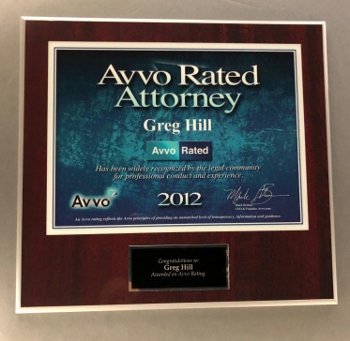Defendant Jerome Carrillo was charged with assault with a deadly weapon, a firearm, and that he did so while acting to benefit a criminal street gang. The case was filed in downtown Los Angeles.
Without All the Details, What Happened?: Trial court may not increase bail from $90,000 to $1 million based on confidential information provided to judge in private meeting.
At Carrillo’s arraignment, he posted bail at $90,000 and was released. He was told to return to court on March 21, 2013.
On March 14, 2013, the prosecution appeared before the judge “ex-parte,” meaning without the defense attorney present to defend his client. The prosecution asked the judge to increase the amount of bail and submitted a declaration under seal for the judge to read. The judge then reviewed the confidential information and increased bail to $1 million. The judge made no effort to ascertain the reliability of the information. He then issued a bench warrant for defendant’s arrest.
 Bail Bonds Sign
Bail Bonds Sign
Defendant was arrested the same day. He must have been surprised. He could not post bail. On the original pre-trial hearing date, March 21, 2013, defendant requested an open hearing on his bail increase, but the judge denied the request.
Less than three weeks later, on April 8, 2013, defendant filed a petition for writ of habeas corpus, arguing that his detention on an increased bond violated Penal Code § 1270.1 and 1289. He further asked his bail to be reset at the original $90,000. He argued that Penal Code § 1289 does not permit ex-parte in camera bail hearings.
The prosecution countered that the open trial right applicable to bail hearings is balanced by the need to protect sensitive information.
Waller v. Georgia (1984) 467 U.S. 39, 45. The Second Appellate District agreed in a tentative manner, noting “such circumstances will be rare, however, and the balance of interests must be struck with special care.”
Waller,
supra, at 45. Moreover, the appellate court noted,
Waller did not contemplate that the defendant would also be denied access to the closed proceedings.
Thus, citing
United States v. Abuhamra (2d Cir. 2004) 389 F.3d 309, at 330, the court ruled that when the prosecution opposes bail, “defendant must receive notice of the gist of the reasons advanced in the government’s sealed submission so defendant can fairly meet this challenge.” It qualified this, however, saying in “rare and unusual cases,” an ex-parte hearing may be appropriate.

Turning to Carrillo’s case, the Second Appellate District noted that the trial court found that Carrillo’s case was both “rare and unusual.” First, the in camera information was deemed “extraordinarily relevant and material on this issue of flight and dangerousness.” Second, the only source of the information was the confidential informant. Third, the affiant suffered from a real threat of serious bodily harm or death if identified. Fourth, the identity of the affiant could not be disclosed because the threat would not abate even if the defendant were detained. Therefore, because of the threat to the affiant, if identified, the in camera evidence cannot be disclosed to defendant except in the most conclusory of terms.
The Second Appellate District disagreed with the trial court, agreeing with Carrillo that the bail increase was improper. Noting that “[f]airness can rarely be obtained by secret, one-sided determinations of facts decisive of right” (
Abuhamra,
supra, at 322), the court said it could not read Penal Code § 1289 to allow closed bail hearings without the procedural safeguards outlined by
Abuhamra. Moreover, there is a risk of error where the decision to revoke bail is based entirely on confidential information.
Thus, Carrillo’s petition for a writ of habeas corpus was granted. The appellate court directed the trial court to vacate its order setting bail at $1 million and ordered bail reinstated at $90,000. If the prosecution wishes to reinstitute proceedings to increase defendant’s bail, the Second Appellate District ordered the trial court to scrutinize the reliability of the confidential information, including his past record of reliability, his relationship to defendant, his motive for providing the evidence at issue, the specificity of the information, the circumstances under which the evidence was procured and the confidential source’s willingness to testify to the information.
The citation for the Second Appellate District Court ruling discussed above is In re Jerome Carrillo (2d. App. Dist., 2013) 219 Cal.App.4th 572, 161 Cal.Rptr.3d 859.
For more information about bail, click on the following articles:
- What Is Bail and Can It Be Reduced?
- How Is Bail Set?
- When Can a Judge Attach Conditions to Bail or Deny Bail?
Contact Greg Hill & Associates
 Bail Bonds Sign
Bail Bonds Sign